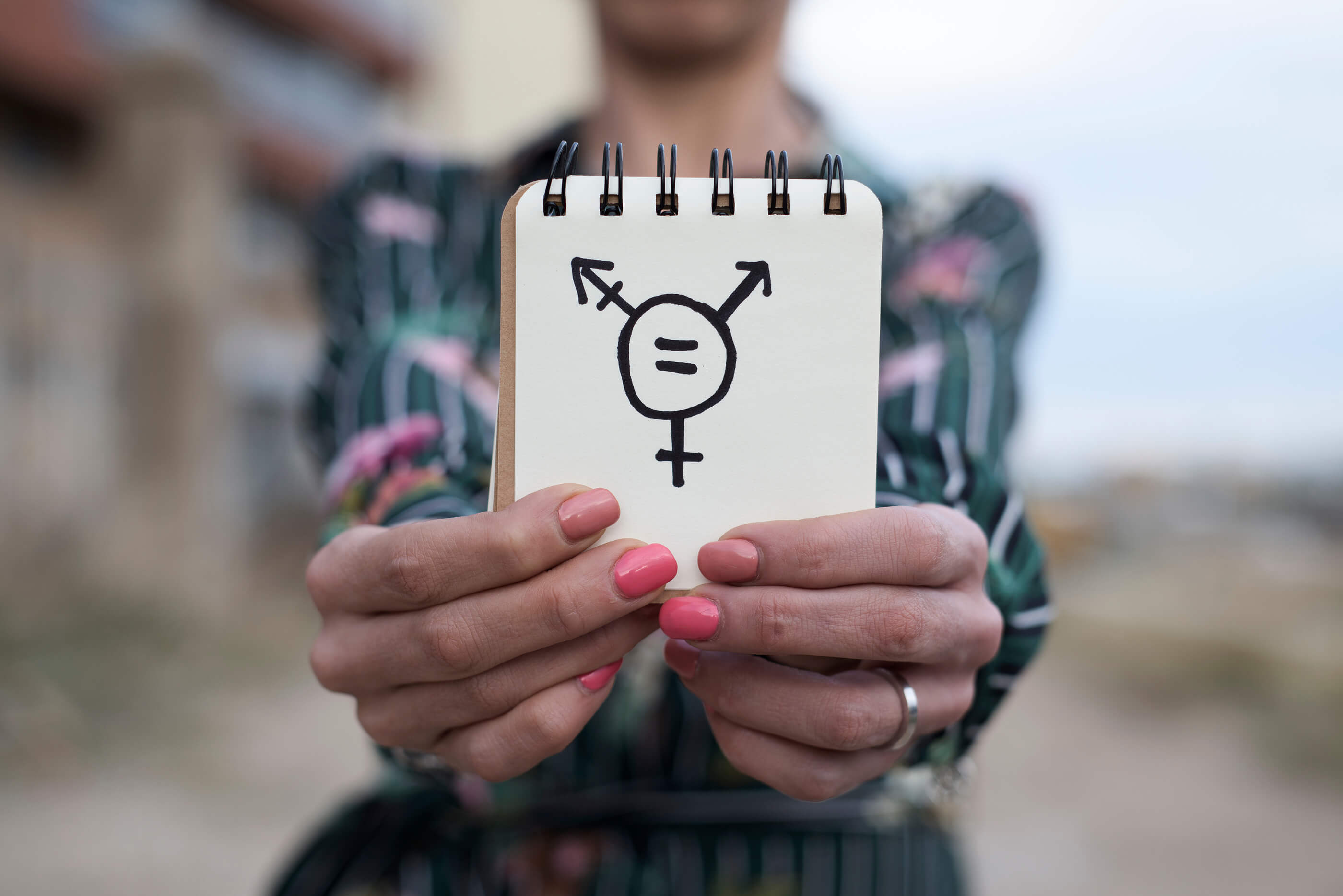
When most people think of November, they conjure up images of Thanksgiving. Family members and other loved ones gathered around a table sharing their stories, their sustenance, and their lives.
But where does the transgender community fit into this idyllic vision of warmth and acceptance? All too often, transgender individuals are ostracized from their families at a young age, facing a judgmental world without the support of relatives or cisgender allies.
This is why we need Transgender Awareness Month.
By shining a light on the unique issues facing the trans community, we can help eradicate misconceptions and mistreatment. Inclusiveness is essential in forging healthy lifestyles, creating bonds with our neighbors, and building a thriving civilization. As it stands right now, we have a lot of work to do…
Alienation Breeds Mental Distress
When someone is treated as the “other” by so-called normal society, they tend to become marginalized. This triggers feelings of neglect and alienation, further pushing the subject outside of the group dynamic and solidifying their outcast status.
Such is the plight of many LGBTQ teens.
Bullying leads to outright discrimination, especially for transgender youth. They often feel helpless to their abusers, amplifying their sense of vulnerability. The stigma attached to being transgender becomes a self-fulfilling prophecy; the statistics show that this community experiences mental health issues at exponentially higher rates than non-transgender teens.
One study indicates that almost half of all transgender individuals suffer from anxiety or depression (or both). Even more alarming: an estimated 41% of the transgender population reports having attempted suicide at one point in their lives.
This is an existential crisis. We are losing our precious LGBTQ loved ones due to abuse and ignorance. In the absence of proper care and understanding, transgender individuals sometimes turn to drugs and alcohol to relieve the pain of discrimination.
Substance Abuse in the Transgender Population
The trauma of hate affects its victims in profound and destructive ways. The pain of discrimination is real; it hurts on various psychological and even physical levels. When someone is in such pain, they naturally seek a remedy, and opioids have become an easy escape in our current climate of prescriptions and avoidance.
One extensive study surveyed over 4,700 transgender students in California and compared their experiences with 630,000 non-transgender kids. According to the numbers, transgender teens were two times more likely to abuse pain meds than their non-trans counterparts.
Across the country, another report found an even more pronounced trend among New York students. This survey showed that transgender kids were actually THREE times more susceptible to opioid abuse than their non-trans classmates.
As mentioned, these tendencies indicate that the pain of discrimination leads to prescription drug abuse. However, the statistics also show that transgender kids often seek an escape from their realities altogether. This is illustrated by the number of trans teens experimenting with “party” drugs like cocaine and meth. The transgender community is 2.5 times more likely than non-trans individuals to abuse these substances.
These numbers could be attributed to their need for acceptance (the ultimate peer pressure), or it could be due to a tendency toward destructive behavior. After all, if society refuses to recognize transgender people for the wonderful, soulful individuals they truly are, then why should they play by that aforementioned society’s rules?
It is precisely this sense of divisiveness and exclusion that we must work to counteract. A healthier, happier path is waiting for you, so let’s walk it together.
Lots of Love, Lack of Resources
Despite the aforementioned numbers, the transgender community often doesn’t have access to the healthcare and treatment resources they so greatly need. In addition to the usual obstacles that encompass substance use recovery and rehabilitation, transgender individuals often require additional resources that dovetail with their transition process.
For example, if they need access to hormone therapy to help fully realize their gender identity, this requires the understanding and support of a qualified team of physicians in concert with their counterparts in the field of psychology. Imagine having to rely on both doctors and therapists to concur that you need the drugs required to express your true self. This process can be exceedingly frustrating and expensive. Not every insurance plan covers hormone therapy, even if your medical team agrees that it’s the right course for you.
The sad truth is that some transgender individuals don’t even arrive at this point in their journey of self-discovery. Some areas of the country (and the world at large) are ignorant of the realities of the transgender experience. Acceptance and access to basic care and counseling are sometimes hundreds – if not thousands – of miles from home.
It’s a daunting challenge, but living your truth often is. And there is no alternative to being who you are.
Envisioning a Better Tomorrow
The information spelled out above may be discouraging or even frightening, but it doesn’t need to be. The question that often lingers in the minds of those seeking help is, “But where do I start?”
And the answer is simple: right here. At Mission Harbor, we take a holistic approach to recovery and mental health. These disciplines are indelibly intertwined; your psychological status informs your behavior and vice versa. If you are using drugs or alcohol to excess, it will invariably affect your emotional wellbeing, thus leading to the propensity for more substance use.
We strive to break this cycle of self-abuse by stepping back and looking at the big picture. You can’t conquer your addiction without understanding what led to it. The societal pressures and oppressiveness applied to transgender individuals can’t be understated. You have fought hard just to be who you truly are.
We applaud you. We hear you. We love you.
Contact one of our care professionals today to restart the conversation and renew your lease on life.




